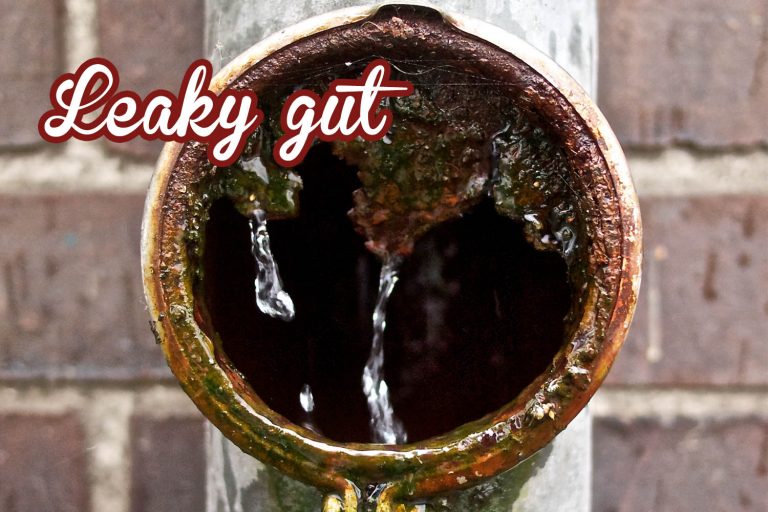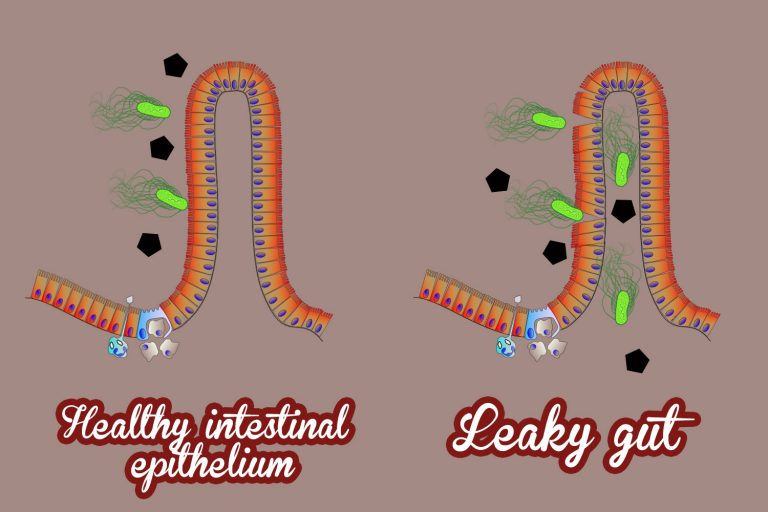30 Apr Importance of leaky gut syndrome in farm animals

A syndrome called “leaky gut” has gained quite a bit of attention lately in human medicine.
The term “leaky gut syndrome” is used to describe the condition of “hyperpermeable intestines” that takes place when the intestinal lining becomes more porous and its barrier function is no longer functioning properly. The fallout results in larger, undigested food molecules and gut microorganisms flowing freely into the bloodstream, causing widespread inflammation in the body and possibly triggering a reaction from the immune system.

In human beings, leaky gut is thought to be caused, among others, by poor diet, nutritional deficiencies, chronic stress, alcohol abuse, dysbiosis, Helicobacter infection and continuous use of non-steroidal anti-inflammatory drugs.
Many studies have connected increased intestinal permeability with multiple chronic diseases, such as celiac disease, diabetes and Crohn’s disease. Many practitioners also link leaky gut to anxiety, depression, autism, brain-related diseases, cancer and eczema, but there is no scientific evidence of this relationship yet.
“Leaky gut” in farm animals
Farm animals also suffer a variety of diseases linked to hyperpermeable intestines.
Besides causing specific diseases, the widespread inflammation linked to leaky gut consumes up to 30% of the metabolic energy that would be otherwise used by the animal to grow or produce eggs or milk.
Feed restriction, heat stress, dysbiosis, diets with poor digestibility, rancid fats, bacterial toxins and mycotoxins (DON, aflatoxin B1, fumonisins) are possible causes of disruption of the intestinal barrier function.
In poultry, loss of the gut barrier function has been linked to:
- Bacterial chondronecrosis with osteomyelitis (femoral head necrosis): it is an infectious process that results from the migration of digestive pathogens from intestine to blood and subsequently to the bone. More information here.
- Translocation of gut pathogens such as Salmonella sp. and E.coli to extraintestinal organs, causing liver infections, perihepatitis, salpingitis, peritonitis and colibacillosis.
In pig, hyperpermeable intestines are related to:
- Postpartum dysgalactia syndrome: in pregnant sows, portions of the cell walls of E.coli, become powerful endotoxins called lipopolysaccharides (LPS), that are absorbed into the bloodstream and interfere with colostrum and milk secretion. More information here.
- Translocation of gut pathogens such as E.coli to extraintestinal organs, including the mesenteric lymph nodes, lung, liver, and spleen.
In ruminants, loss of the gut barrier function has been linked to:
- Fat accumulation in liver
- Ketosis
- Translocation of gut pathogens such as Salmonella sp. and E.coli to extra intestinal organs, especially in young ruminants.
In conclusion
There is increasing focus on the health problems related to leaky gut, both in humans and in farm animals.
To relieve this syndrome, it is necessary to take a holistic approach to maintain and improve gut health, including the reduction of stress, using digestible ingredients in feed, high quality fats, adding an effective mycotoxin binder and administering plant extracts for digestive health.

Certain health statements may not be applicable in your region.

